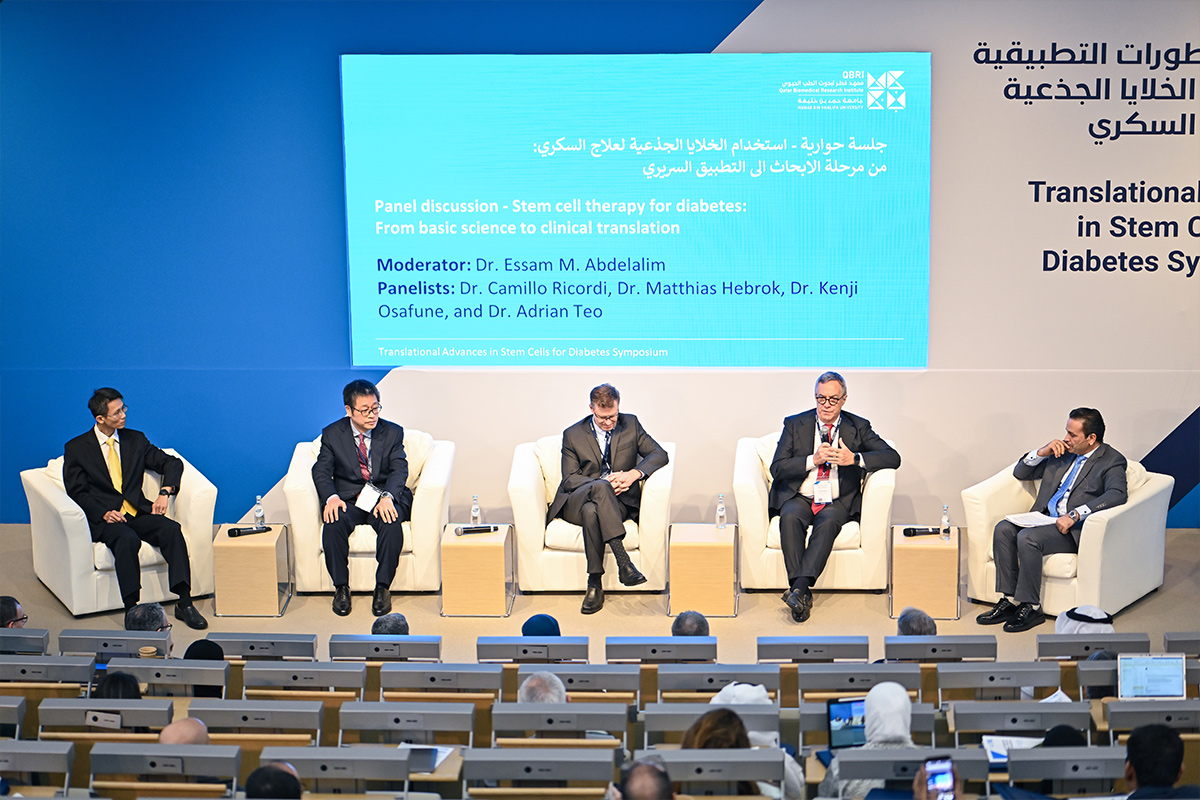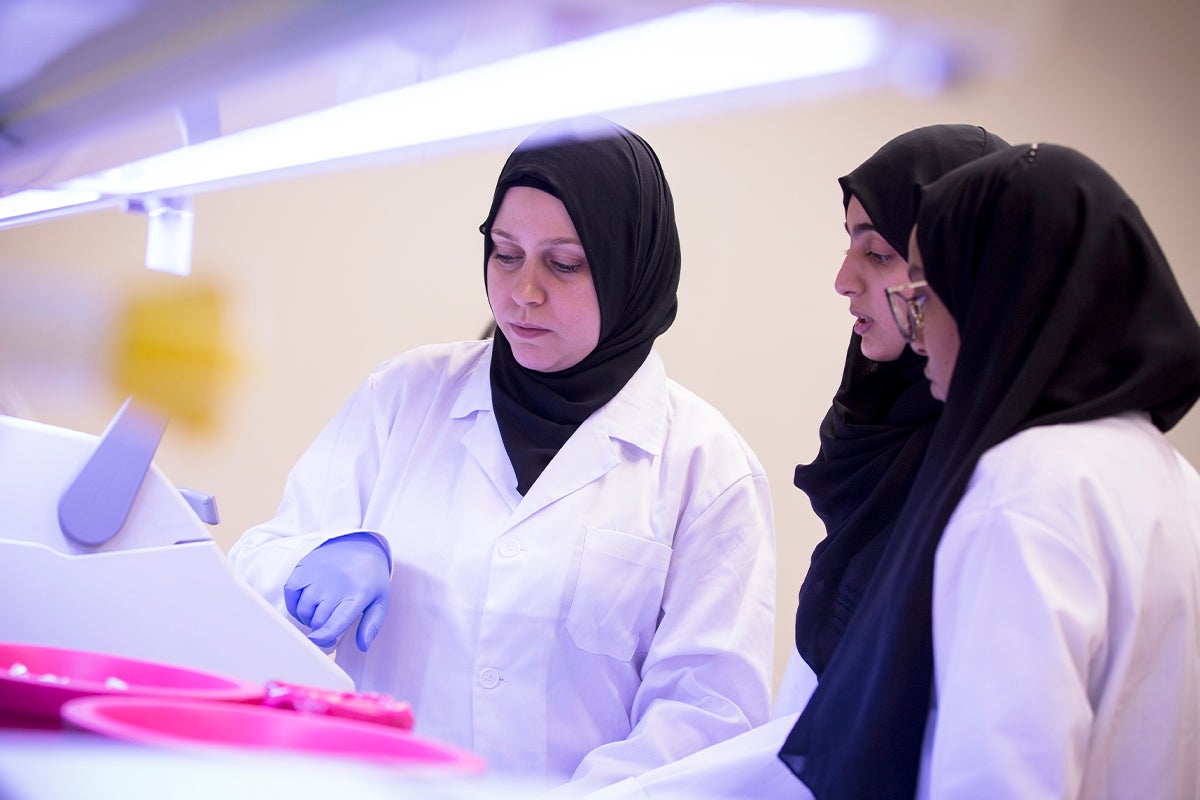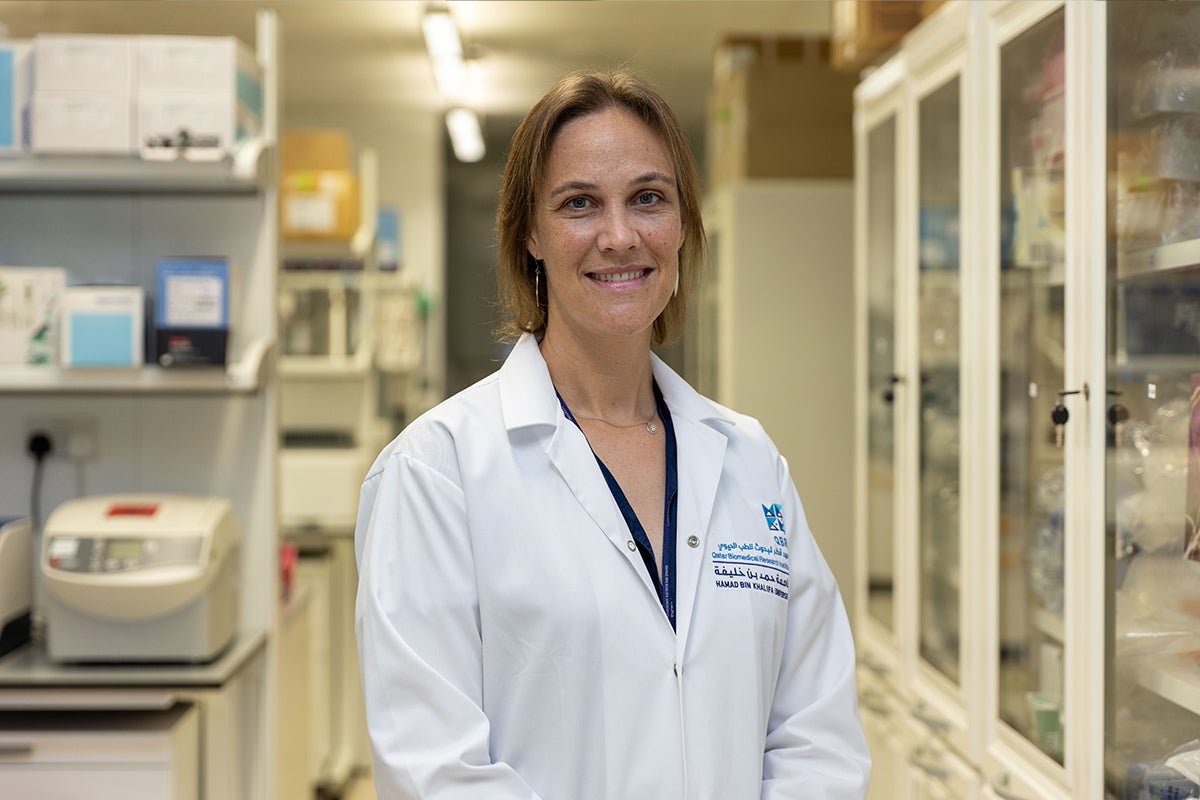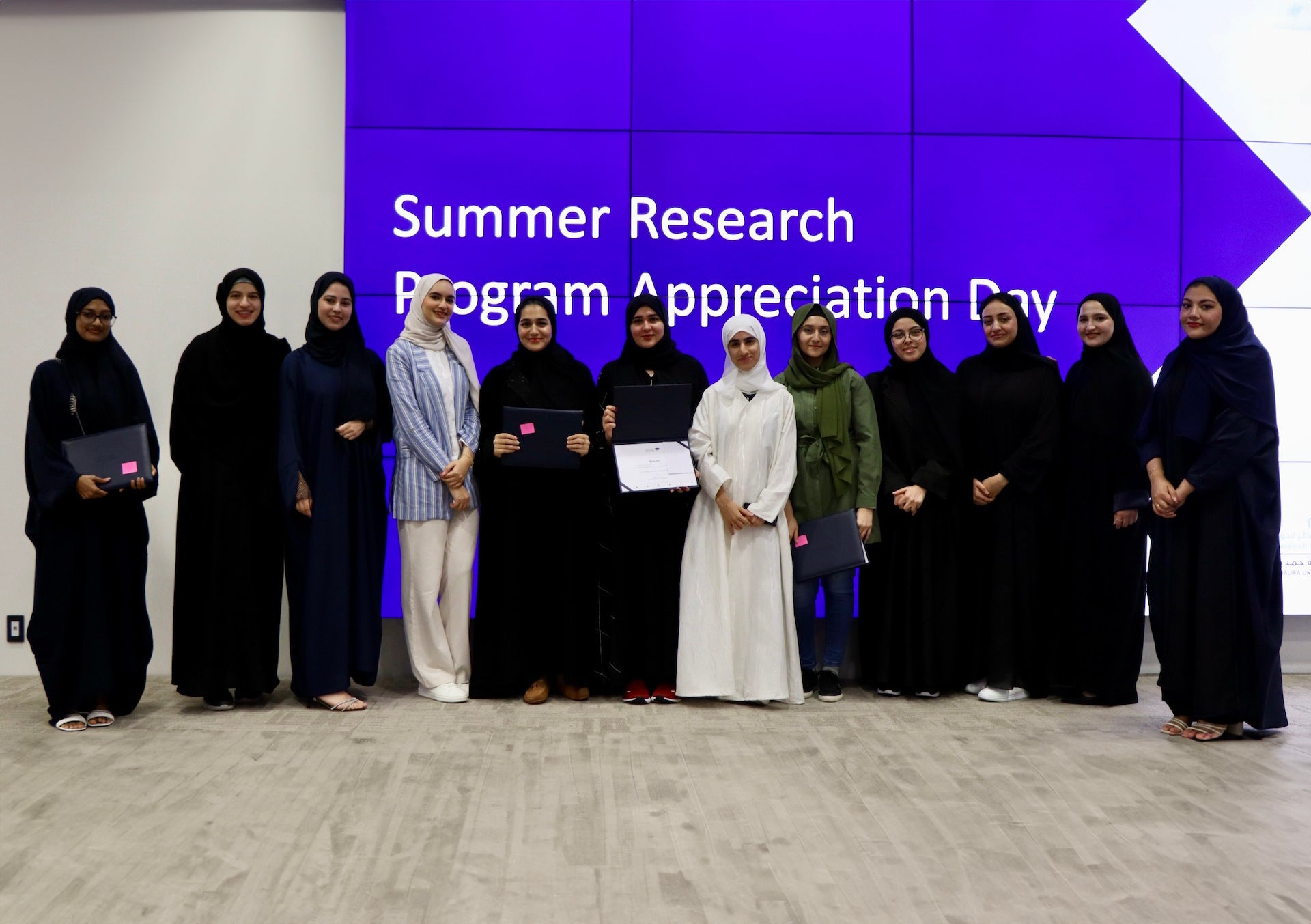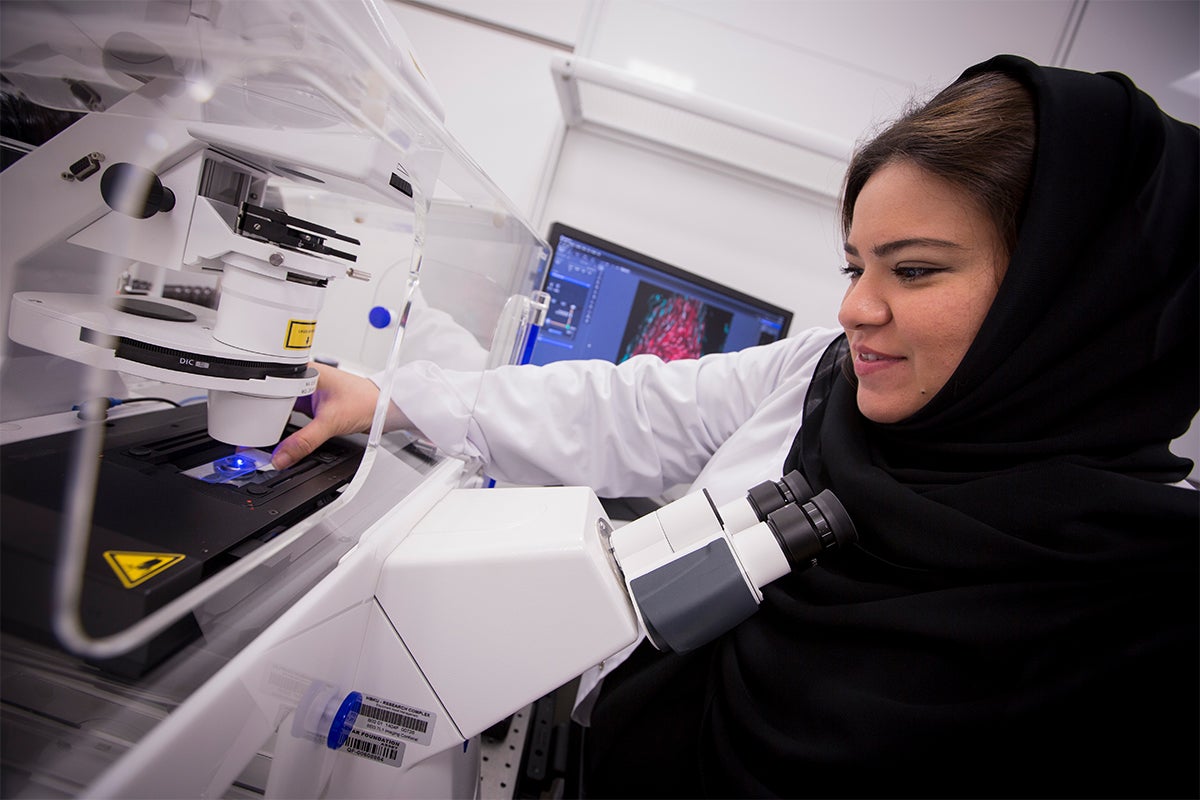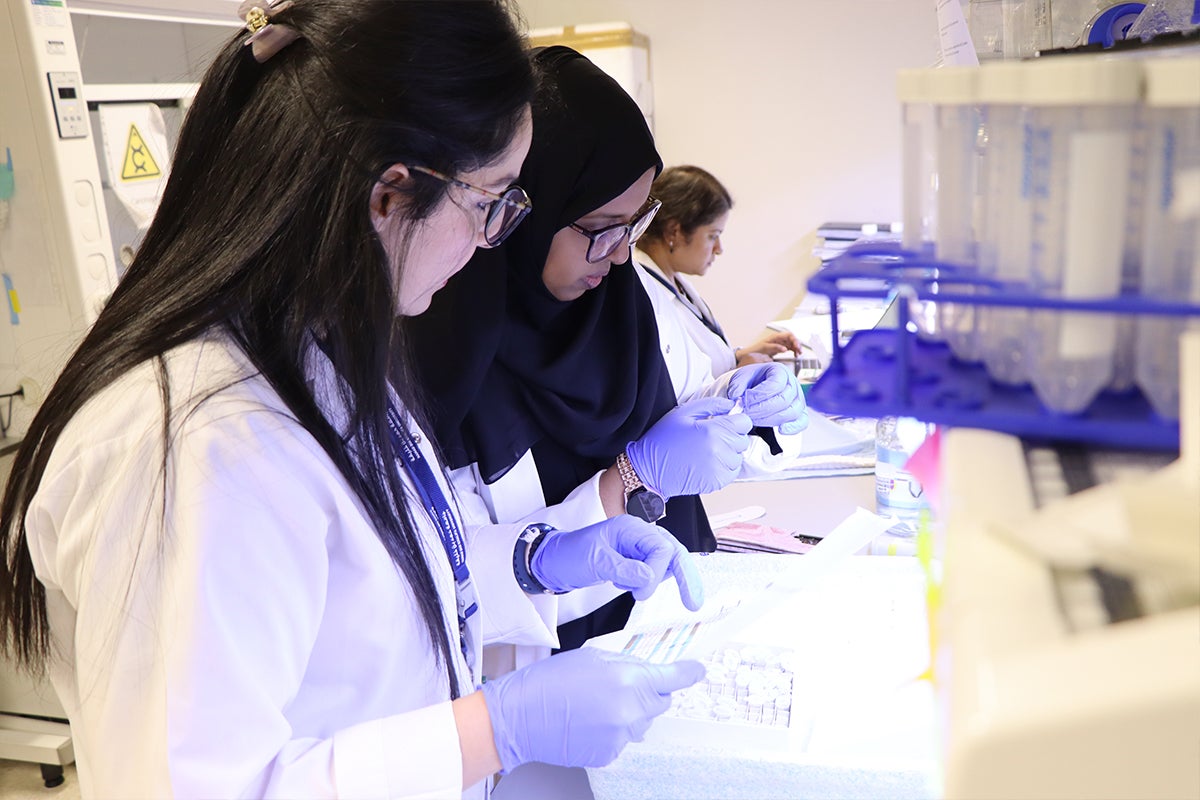
Landmark Study by QBRI Unveils Impact of Cholesterol on Neurodegenerative and Neurodevelopmental Disorders
By QBRI Research Team

Advancements in biomedical research continue to bring hope to those affected by neurodegenerative and neurodevelopmental disorders. One such advancement is the recent publication by Dr. Yongsoo Park, a scientist at Hamad Bin Khalifa University’s (HBKU) Qatar Biomedical Research Institute (QBRI). Dr. Park's research paper, published in Advanced Science and selected as a Frontispiece, sheds light on the role of cholesterol in synaptic transmission and neuronal function, potentially opening new avenues for treating these debilitating disorders.
The publication of Dr. Park's research in Advanced Science, one of the top journals in biophysics and bioengineering, underscores the significance of his findings. The journal is renowned for publishing cutting-edge research in biophysics and bioengineering, and its high impact factor of 17.5, as measured by Clarivate, indicates the importance of the work it publishes.
The scientific report, selected as a Frontispiece on May 26, 2023, highlights the findings of Dr. Park's team that age-related cholesterol reduction in the brain is linked to reduced synaptic activity. This is the means by which neurons communicate with each other and is critical for proper neurological function. Defects in synaptic transmission resulting from cholesterol deficiency could lead to neurodegeneration, making cholesterol an essential factor in brain health. By understanding the molecular mechanisms of how cholesterol contributes to synaptic transmission, Dr. Park's team aims to explore the potential for optimizing cholesterol levels in the plasma membrane to treat neurodegenerative and neurodevelopmental disorders.
Dr. Park's research represents a development in our understanding of the mechanisms behind these disorders. The study's findings are highly relevant, given that more than 50 million people worldwide suffer from neurodegenerative disorders such as Alzheimer's and Parkinson's, with the numbers projected to increase significantly in the coming years. Neurodevelopmental disorders, such as autism and intellectual disabilities, affect an estimated 15% of children globally, representing a significant burden on individuals, families, and societies.
This research was conducted in collaboration with Dr. Said Mansour, Director of HBKU's Core Labs, highlighting the importance of teamwork and cross-disciplinary collaboration in biomedical research. The collaboration further exemplifies HBKU's commitment to fostering innovation and excellence through collaborative research across various fields, leading to better outcomes for humanity.
Dr. Park's work also highlights the value of research at QBRI. The institute conducts research that has a direct impact on human health, and the study's findings have the potential to be translated into clinical practice, benefiting patients who suffer from neurodegenerative and neurodevelopmental disorders.
The publication of Dr. Park's article in Advanced Science is not only a testament to the quality of research conducted at QBRI but also an opportunity to showcase the achievements of Qatar's scientific community. As a leading regional research institution, QBRI is committed to advancing scientific discovery and disseminating its findings to the global community. Dr. Park's article is an excellent example of this commitment to scientific excellence and innovation.
Full article can be found here: https://onlinelibrary.wiley.com/doi/10.1002/advs.202206823
Related News
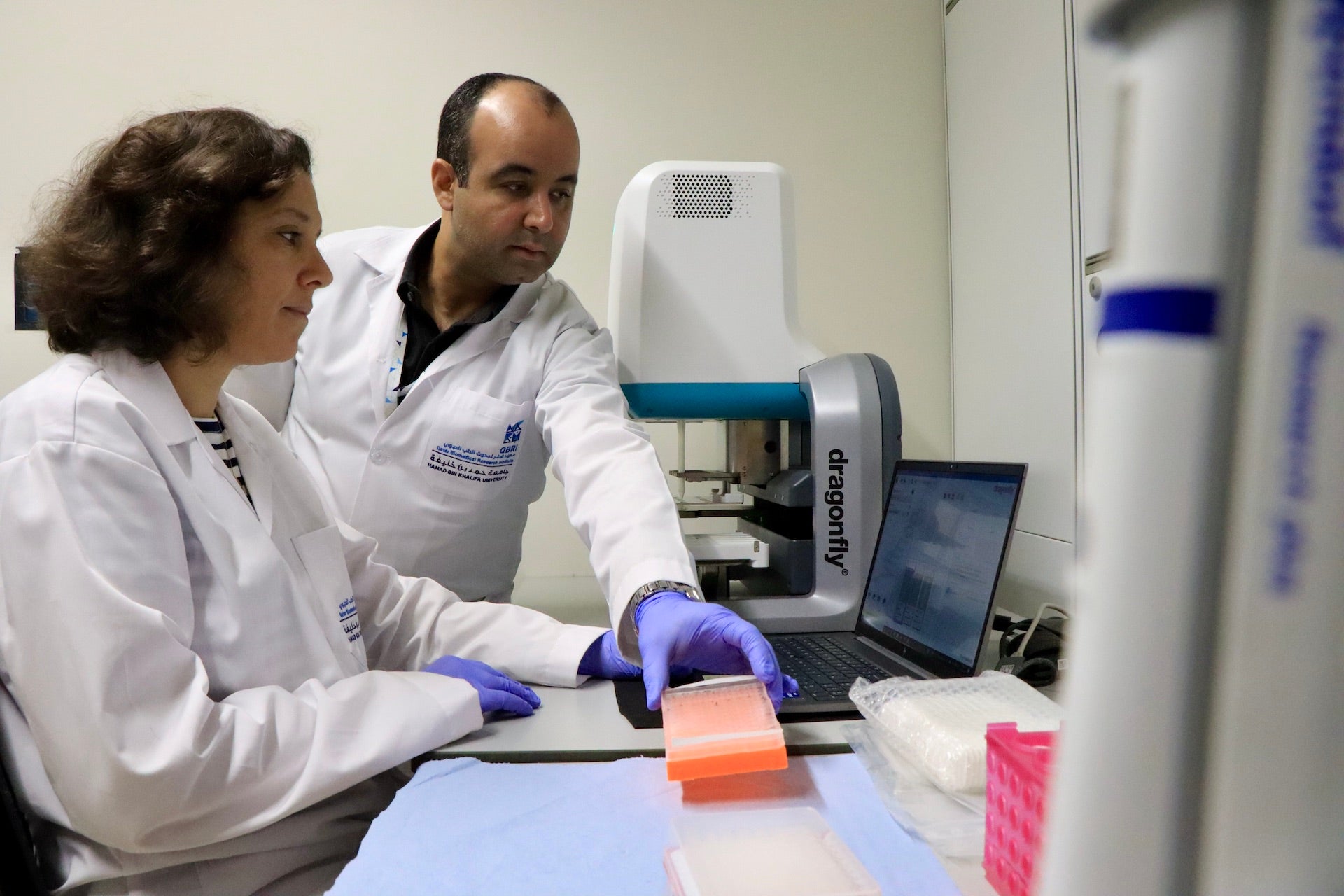
Extensive Collaborations and Unique Technical Capabilities Unveil Neurological Protein Signature of Severe COVID-19

Advancements in Type 1 Diabetes Treatment: FDA Approves CellTrans' Lantidra Cell Therapy
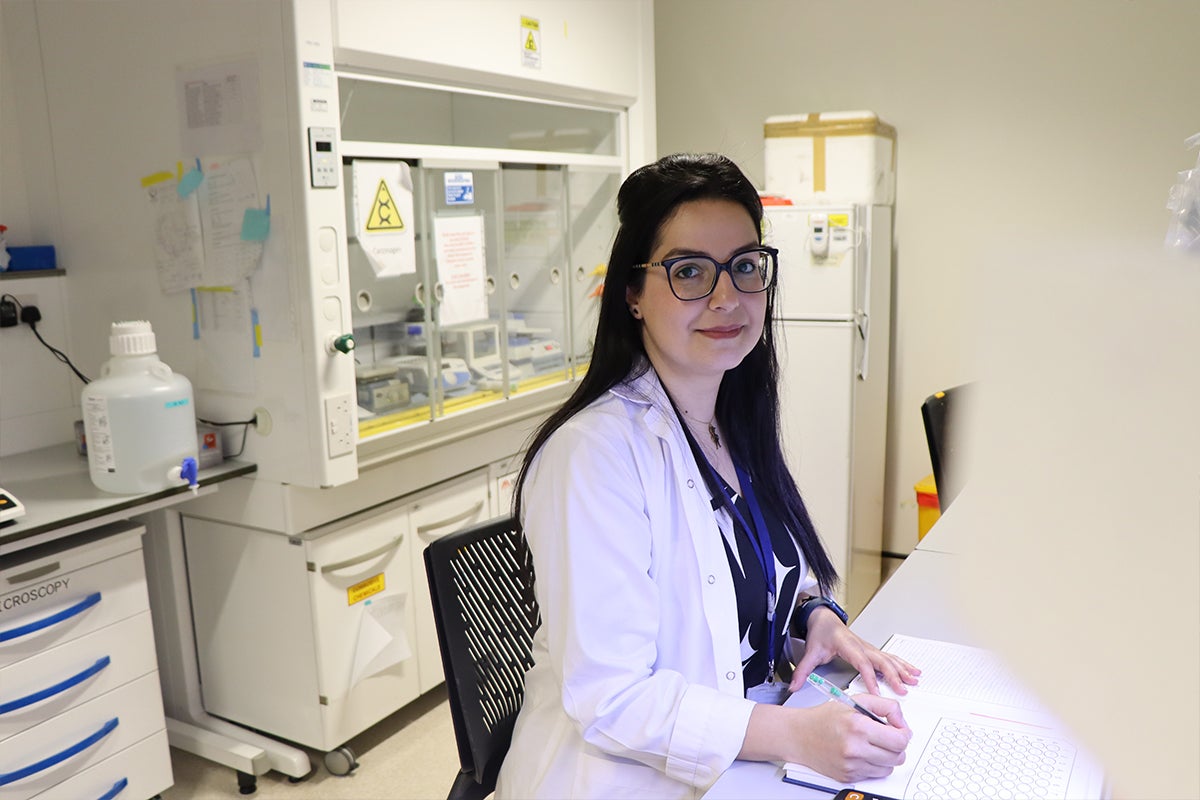
Earlier Diagnosis through Improved Biomarkers to Help Modulate Parkinson’s Disease

Extensive Collaborations and Unique Technical Capabilities Unveil Neurological Protein Signature of Severe COVID-19

Advancements in Type 1 Diabetes Treatment: FDA Approves CellTrans' Lantidra Cell Therapy

Earlier Diagnosis through Improved Biomarkers to Help Modulate Parkinson’s Disease

Extensive Collaborations and Unique Technical Capabilities Unveil Neurological Protein Signature of Severe COVID-19

Advancements in Type 1 Diabetes Treatment: FDA Approves CellTrans' Lantidra Cell Therapy

Earlier Diagnosis through Improved Biomarkers to Help Modulate Parkinson’s Disease

Extensive Collaborations and Unique Technical Capabilities Unveil Neurological Protein Signature of Severe COVID-19

Advancements in Type 1 Diabetes Treatment: FDA Approves CellTrans' Lantidra Cell Therapy

Earlier Diagnosis through Improved Biomarkers to Help Modulate Parkinson’s Disease

Extensive Collaborations and Unique Technical Capabilities Unveil Neurological Protein Signature of Severe COVID-19

Advancements in Type 1 Diabetes Treatment: FDA Approves CellTrans' Lantidra Cell Therapy

Earlier Diagnosis through Improved Biomarkers to Help Modulate Parkinson’s Disease

Extensive Collaborations and Unique Technical Capabilities Unveil Neurological Protein Signature of Severe COVID-19

Advancements in Type 1 Diabetes Treatment: FDA Approves CellTrans' Lantidra Cell Therapy

Earlier Diagnosis through Improved Biomarkers to Help Modulate Parkinson’s Disease

Extensive Collaborations and Unique Technical Capabilities Unveil Neurological Protein Signature of Severe COVID-19

Advancements in Type 1 Diabetes Treatment: FDA Approves CellTrans' Lantidra Cell Therapy

Earlier Diagnosis through Improved Biomarkers to Help Modulate Parkinson’s Disease

Extensive Collaborations and Unique Technical Capabilities Unveil Neurological Protein Signature of Severe COVID-19

Advancements in Type 1 Diabetes Treatment: FDA Approves CellTrans' Lantidra Cell Therapy

Earlier Diagnosis through Improved Biomarkers to Help Modulate Parkinson’s Disease

Extensive Collaborations and Unique Technical Capabilities Unveil Neurological Protein Signature of Severe COVID-19

Advancements in Type 1 Diabetes Treatment: FDA Approves CellTrans' Lantidra Cell Therapy

Earlier Diagnosis through Improved Biomarkers to Help Modulate Parkinson’s Disease

Extensive Collaborations and Unique Technical Capabilities Unveil Neurological Protein Signature of Severe COVID-19

Advancements in Type 1 Diabetes Treatment: FDA Approves CellTrans' Lantidra Cell Therapy

Earlier Diagnosis through Improved Biomarkers to Help Modulate Parkinson’s Disease

Extensive Collaborations and Unique Technical Capabilities Unveil Neurological Protein Signature of Severe COVID-19

Advancements in Type 1 Diabetes Treatment: FDA Approves CellTrans' Lantidra Cell Therapy

Earlier Diagnosis through Improved Biomarkers to Help Modulate Parkinson’s Disease

Extensive Collaborations and Unique Technical Capabilities Unveil Neurological Protein Signature of Severe COVID-19

Advancements in Type 1 Diabetes Treatment: FDA Approves CellTrans' Lantidra Cell Therapy

Earlier Diagnosis through Improved Biomarkers to Help Modulate Parkinson’s Disease

Extensive Collaborations and Unique Technical Capabilities Unveil Neurological Protein Signature of Severe COVID-19

Advancements in Type 1 Diabetes Treatment: FDA Approves CellTrans' Lantidra Cell Therapy

Earlier Diagnosis through Improved Biomarkers to Help Modulate Parkinson’s Disease

Extensive Collaborations and Unique Technical Capabilities Unveil Neurological Protein Signature of Severe COVID-19

Advancements in Type 1 Diabetes Treatment: FDA Approves CellTrans' Lantidra Cell Therapy

Earlier Diagnosis through Improved Biomarkers to Help Modulate Parkinson’s Disease

Extensive Collaborations and Unique Technical Capabilities Unveil Neurological Protein Signature of Severe COVID-19

Advancements in Type 1 Diabetes Treatment: FDA Approves CellTrans' Lantidra Cell Therapy

Earlier Diagnosis through Improved Biomarkers to Help Modulate Parkinson’s Disease

Extensive Collaborations and Unique Technical Capabilities Unveil Neurological Protein Signature of Severe COVID-19

Advancements in Type 1 Diabetes Treatment: FDA Approves CellTrans' Lantidra Cell Therapy

Earlier Diagnosis through Improved Biomarkers to Help Modulate Parkinson’s Disease

Extensive Collaborations and Unique Technical Capabilities Unveil Neurological Protein Signature of Severe COVID-19

Advancements in Type 1 Diabetes Treatment: FDA Approves CellTrans' Lantidra Cell Therapy

Earlier Diagnosis through Improved Biomarkers to Help Modulate Parkinson’s Disease

Extensive Collaborations and Unique Technical Capabilities Unveil Neurological Protein Signature of Severe COVID-19

Advancements in Type 1 Diabetes Treatment: FDA Approves CellTrans' Lantidra Cell Therapy






